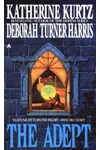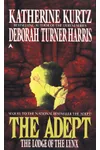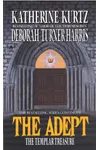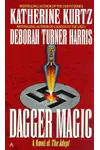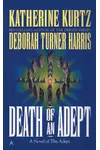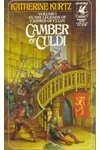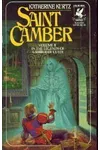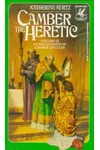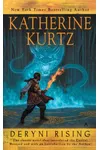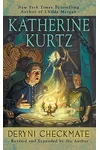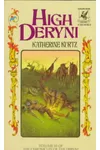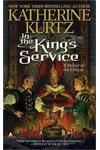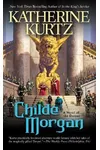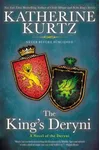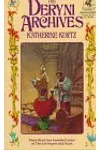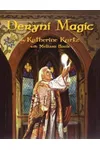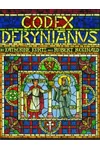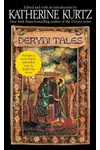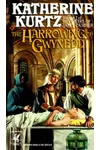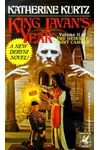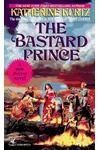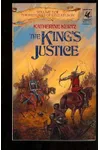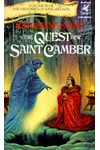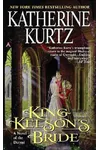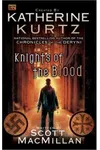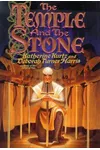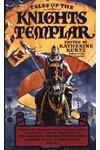Picture an American storyteller who spun medieval magic into a groundbreaking fantasy saga—meet Katherine Kurtz! Born in 1944, Kurtz redefined fantasy literature with her Deryni series, blending intricate political intrigue, psychic powers, and a richly imagined medieval world. Her unique ability to weave historical detail with fantastical elements has captivated readers for decades, earning her a revered spot among post-Tolkien fantasy giants.
From her chemistry roots to her years in an Irish castle, Kurtz’s life is as fascinating as her novels. Let’s dive into the journey of this trailblazing author whose tales of Gwynedd continue to enchant.
The Making of Katherine Kurtz
Katherine Irene Kurtz was born on October 18, 1944, in Coral Gables, Florida, during a hurricane—a dramatic start fitting for a future fantasy icon. A scholarship took her to the University of Miami, where she earned a B.S. in chemistry. She briefly attended medical school before shifting gears to pursue an M.A. in Medieval History at UCLA. While studying, she worked at the Los Angeles Police Academy and dabbled in oceanography and television, but her passion for storytelling soon took center stage. Her love for medieval history and her knack for crafting complex narratives laid the foundation for her literary career.
Katherine Kurtz’s Unforgettable Stories
Kurtz burst onto the fantasy scene in 1970 with Deryni Rising, the first novel in her acclaimed Deryni series. Set in the fictional kingdom of Gwynedd, a medieval realm mirroring 12th-century Britain, the series follows the Deryni, a psychic race with magical abilities, navigating prejudice and power struggles. Deryni Rising introduces young King Kelson Haldane, who must harness his latent powers to defend his throne. Its historical fantasy style—favoring political and religious conflicts over mythical tropes—was revolutionary, setting Kurtz apart from Tolkien’s shadow.
The Deryni series spans five trilogies, with standout titles like Deryni Checkmate (1972), where Kelson’s advisor Alaric Morgan faces persecution, and Camber of Culdi (1976), a prequel exploring the Deryni’s historical struggles. Kurtz also penned Lammas Night (1983), a standalone novel blending occult themes with World War II, showcasing her versatility. Her writing is known for its meticulous world-building, morally complex characters, and a tone that balances hope with gritty realism, making Gwynedd feel vividly alive.
Collaborations like the Adept series with Deborah Turner Harris brought urban fantasy to her repertoire, while St. Patrick’s Gargoyle (2001) offered a whimsical take on Dublin’s supernatural guardians. Each work reflects Kurtz’s ability to craft immersive, character-driven stories that resonate across genres.
Why Katherine Kurtz Matters
Kurtz’s impact on fantasy literature is profound. Her Deryni series pioneered historical fantasy, influencing authors like George R.R. Martin with its focus on political intrigue and morally gray characters. By portraying the Deryni’s struggles against prejudice, Kurtz tackled themes of discrimination and ethics, drawing parallels to real-world issues. Her work remains a touchstone for fans craving depth and authenticity in fantasy, and her active engagement with readers through forums and chats keeps her legacy vibrant.
Her novels, translated into multiple languages, have inspired fan fiction, role-playing games, and a dedicated community at sites like RhemuthCastle.com. Kurtz’s ability to blend faith, magic, and history continues to inspire new generations of writers and readers.
- Birth Date: October 18, 1944
- Key Works: Deryni Rising, Camber of Culdi, Lammas Night, St. Patrick’s Gargoyle
- Notable Recognition: Finalist for the 1971 Mythopoeic Fantasy Award for Deryni Rising
- Fun Fact: Kurtz lived in Holybrooke Hall, an Irish castle, for over 20 years!
Snag Deryni Rising and dive into Katherine Kurtz’s spellbinding historical fantasy today!
